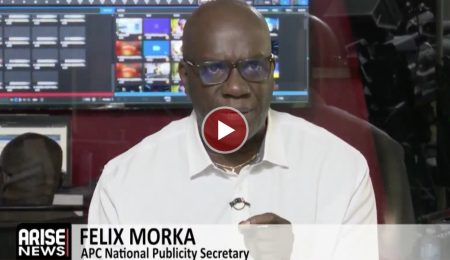The Commissioner for Transportation in Enugu State, Dr. Obi Ozo, has defended the launch of the state-owned airline, Enugu Air, calling it a cornerstone of the government’s economic transformation strategy and a bold move to create jobs and attract investment.
Following Monday’s inaugural flight, Dr. Ozo, in an interview with ARISE NEWS on Wednesday, said the state’s vision is to move Enugu from a civil-service-based economy to one powered by tourism, transport, and industry.
“Our aim is simple, lift people out of poverty by creating opportunities,” he said. “We’re thinking outside the box. Transportation remains the vein that powers any economy.”
He added that Enugu Air is part of a wider multi-modal infrastructure plan that includes road networks, electric vehicles, and a new cargo terminal. The airline, he said, will enhance regional access and eventually connect to wider West and Central Africa.
Responding to concerns about the airline’s legality, given it currently operates under another carrier’s license, Dr. Ozo clarified, “That’s why we say ‘Enugu Air operated by ExeJet.’ We’re riding on their AOC, Air Operator Certificate, while we finalise ours.”
He explained that working with an established operator like ExeJet allows the state to avoid common pitfalls in Nigeria’s aviation sector, “Aviation is highly regulated and margins are thin. We wanted to move fast without compromising standards.”
According to the commissioner, the airline’s launch cost the state between $28 million and $40 million, covering three used Embraer aircraft, spares, and working capital. The planes are under 10 years old and have an expected life span of 35 years.
Ozo said revenue projections for the first year are $39.4 million, with an estimated break-even point in four years. By that time, he added, net profits could reach ₦60 billion.
Beyond financials, he emphasised the broader economic impact,” It’s not just about aviation profits. It’s the 3 million tourists, the hospitality boom, the jobs it’s a ripple effect.”
Enugu Air, he added, is not structured as a joint venture but runs on a management agreement with ExeJet. The infrastructure, including the yet-to-be-completed international wing of the airport, is part of a broader public-private partnership (PPP) with federal agencies.
On sustainability, he said the administration is learning from other Nigerian states that have managed similar ventures, “It’s not just about structure. It’s about leadership.
We’ve signed a social contract rooted in transparency, traceability, and accountability.”
Dr. Ozo concluded with confidence that the airline would not only be viable but transformative, “Our people can’t wait. They need jobs now. Enugu Air is not just a flight, it’s a signal of a new economy.”
Erizia Rubyjeana
Follow us on:


